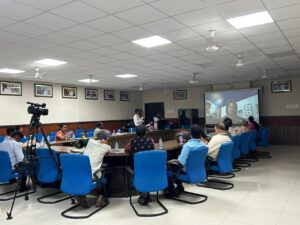Anthropology is the scientific study of human beings- their origin, customs, beliefs, traditions, developments and many more. It also studies our biological bodies and genetics, as well as our health, diet and lifestyle. Anthropology looks to human in their past, analysis them in present and study how will their future. What humans are, how they evolved and how they differ from one another is the common study of an anthropology. Archaeology examines peoples and their cultures of the past where as biological anthropology specializes in evolution, genetics and health of them. Anthropology is the study of human behavior, culture and societies. So, it plays an important role in the field of international relations. It helps researcher to know unique perspectives on understanding global politics, power dynamics and the role of human agency in shaping international systems.

An International Conference is a conclave where worldwide leaders thought united to dissect themes of mutual interest. It is a platform where people come together to learn from each other and sharing knowledge for resolve problems. Organizing a successful conference requires concept, planning, execution, preparation and dedicated resources. First prepare your layout step by step for free international conference on anthropology. The creative conference ideas will make the conference unique, so the plan should consist of logistics, content oriented and the advertising of the event. Make a document which is accessible to the entire team, prepare a list of the important tasks, then set it up in order of their priority and maintain a timeframe. After planning, choose the right date and location for your conference then draft your budget. Book a venue for your conference, make a team and allocate duties, contact your speakers and then work for conference registration. Finally marketing your conference and be friendly to participants, speakers and associates.